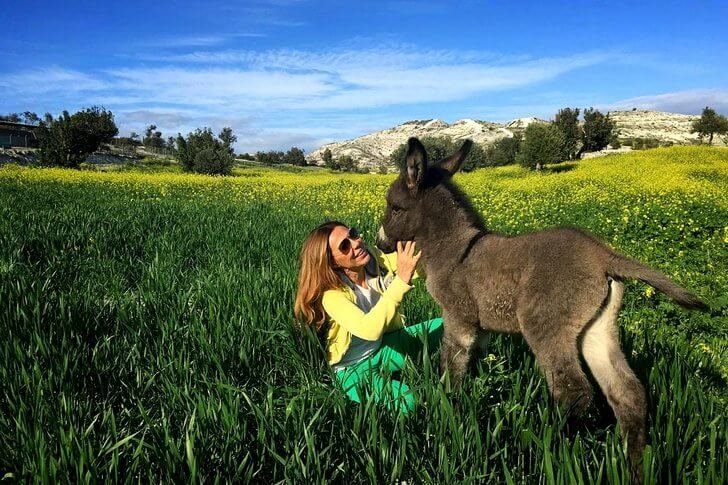Sunny Larnaca means kilometers of magnificent beaches, a quiet family vacation and an abundance of architectural sights, many of which are 700-1000 years old. This place is also suitable for lovers of diving and refreshing sea trips.
Many temples, monasteries and fortresses located in Larnaca and its environs have survived to this day intact and intact. You can experience unforgettable sensations while walking around the church of Angeloktisti or the monastery of Stavrovouni - a huge layer of past centuries seems to be in the air and makes tourists think about eternity.
But for many, Larnaca is, first of all, a quality, unhurried and relaxing beach holiday. The sea here is clean and warm, the beaches withstand even the most stringent requirements, and the infrastructure is perfectly adapted to the most demanding needs.
What to see and where to go in Larnaca?
The most interesting and beautiful places for walking. Photos and a short description.
- Church of Saint Lazarus
- Salt lake of Larnaca
- Larnaca Castle
- Finikoudes beach
- Mackenzie Beach
- Port of Larnaca
- Church of Angeloktisti
- Stavrovouni monastery
- Hala Sultan Tekke Mosque
- Museum of Pieridis
- Medical Museum Kyriazis
- Archaeological Museum of Larnaca
- Pottery workshop Emira Pottery
- Lefkara village
- Settlement of Hirokitia
- Ancient city of Kition
- Aqueduct Kamares
- Sunken Ferry Zenobia
- Camel park
- Donkey farm Golden Donkeys
Church of Saint Lazarus
The appearance of the temple dates back to the 9th century, when Emperor Leo IV ruled Byzantium. Saint Lazarus is the patron saint of Larnaca, he lived in Cyprus for 30 years and preached Christianity all this time. The place of his burial "larnax" in translation means "sarcophagus" or "coffin", hence the name of the city. The Church of St. Lazarus has been standing for more than a thousand years; the building has been reconstructed several times. The last restoration was carried out in 1972, as a result of which part of the relics of the saint was found.

Salt lake of Larnaca
The appearance of the reservoir is associated with the legend of St. Lazarus. The parable says that when he was walking near the vineyards, he asked the owners for one bunch of grapes to quench his thirst, but stingy people refused him. Then Lazarus became angry and predicted that this land would be barren and nothing would be born on it except salt. The next day, instead of a fertile vineyard, people saw a salt lake. In summer, the reservoir dries up completely and is covered with a 10-centimeter crust of salt.
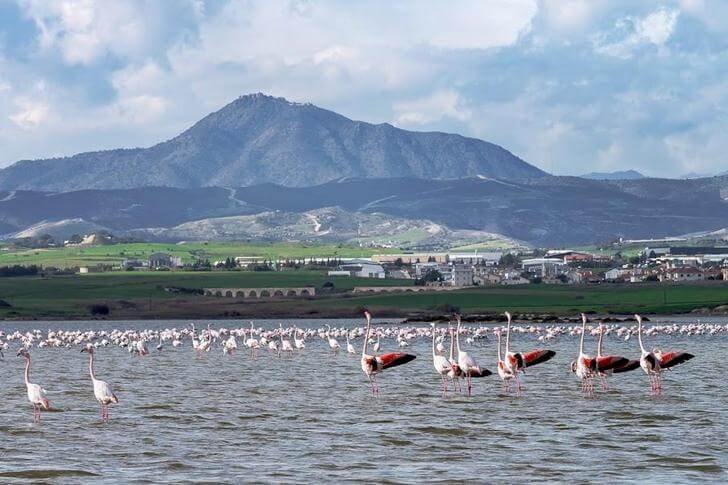
Larnaca Castle
According to one version, the fort was built in the 13th century during the reign of King James I to protect the city from enemies. In the XIV century it was captured by the Genoese. By the 18th century, the complex had dilapidated and fell into disrepair, but it was rebuilt by the Ottoman Turks. During the First World War, the fortress was used by the German troops as an outpost, but after the defeat of Germany, it passed into the hands of the British. Now on the territory there is a museum with valuable exhibits of the Early Middle Ages.
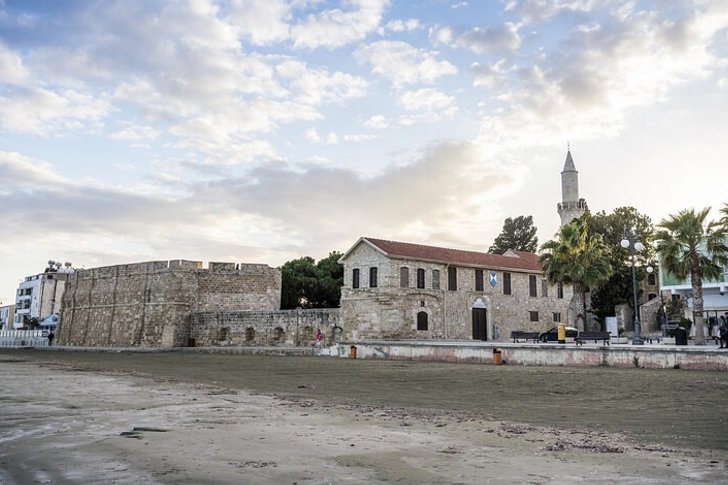
Finikoudes beach
A small city beach 500 meters long with clear and clean water. It is perfect for children, as the descent into the sea is quite gentle, and there are no sharp stones on the soft sandy bottom. The beach is marked with the Blue Flag quality mark. A well-maintained picturesque embankment stretches along the coast - the place of the promenade of numerous tourists. The alley is separated from the noisy roadway by a dense row of date palms.
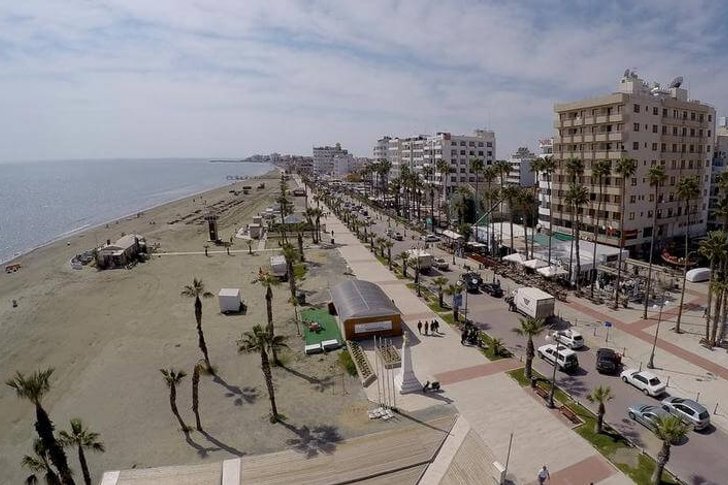
Mackenzie Beach
The beach is located in the western part of Larnaca, its territory adjoins directly to the airport. Tourists vacationing on the Mackenzie have the opportunity to contemplate the planes taking off and landing every few minutes. A pedestrian road with numerous taverns and bars leads along the beach. Like all city beaches of Larnaca, Mackenzie has a gentle slope into the water, clear water and sand shining in the sun.
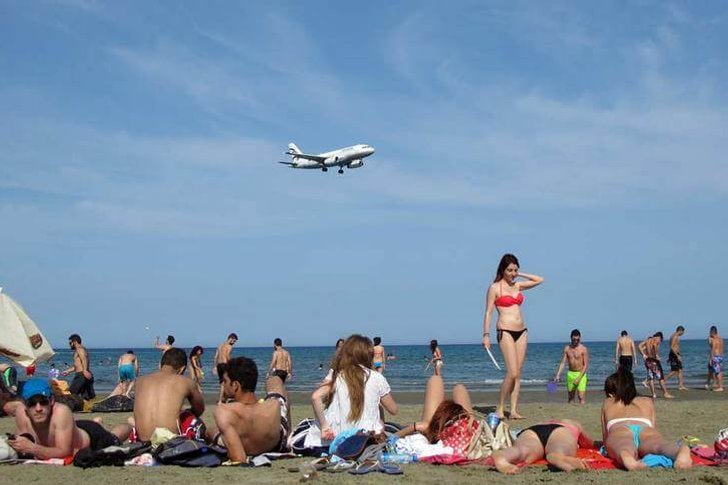
Port of Larnaca
A parking place for yachts of all stripes and sizes, as well as more modest boats. Larnaca Marina accommodates about 450 vessels, whose dimensions do not exceed 40 meters. In the high season, you can not find a free place for mooring in the port. Many boat owners offer boat trips for tourists or fishing. But the main place in the marina is occupied by seafarers who cruise the Mediterranean.
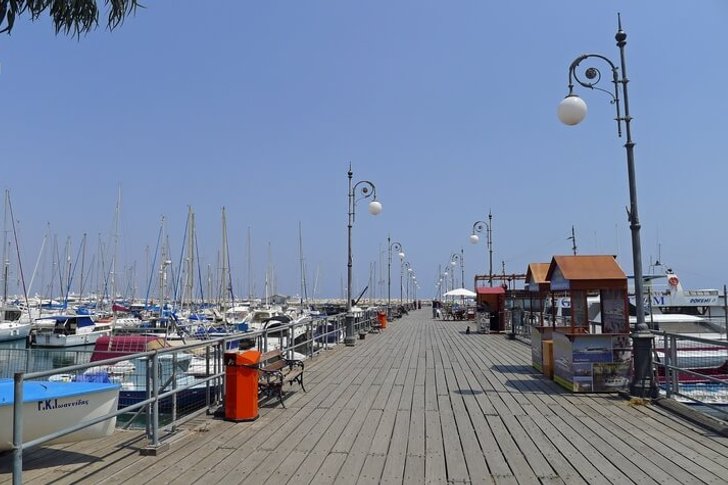
Church of Angeloktisti
Byzantine church of the 11th century, built on the ruins of an early Christian temple, partially destroyed during the Arab invasion. Frescoes of the 6th century have been miraculously preserved, which have survived to this day thanks to a layer of plaster covering them. Unique images were discovered during restoration in 1952. A very ancient tree grows next to the church, protected by the state as a natural monument.
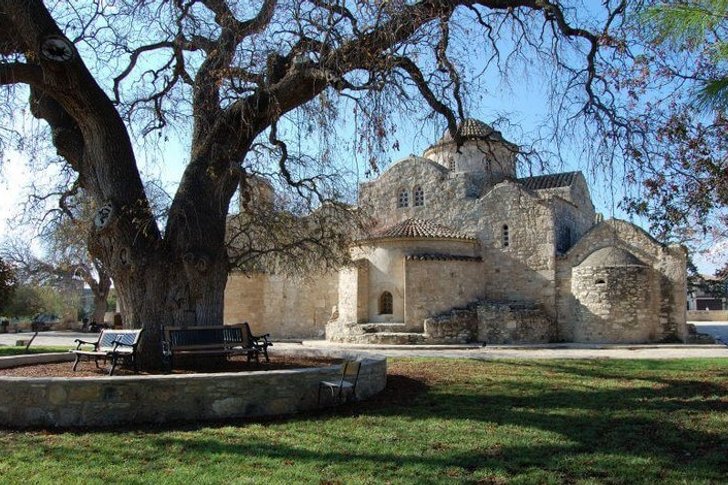
Stavrovouni monastery
One of the most ancient monasteries in Cyprus. It is believed that the monastery was founded in the 4th century by the mother of Emperor Constantine, later canonized - St. Helena. The first written mention of the monastery dates back to the beginning of the 12th century. The monastery was repeatedly raided and destroyed, at one time it was owned by the Catholic Church. The most important relic, which is kept within the walls of Stavrovouni, is a part of the Life-Giving Cross.
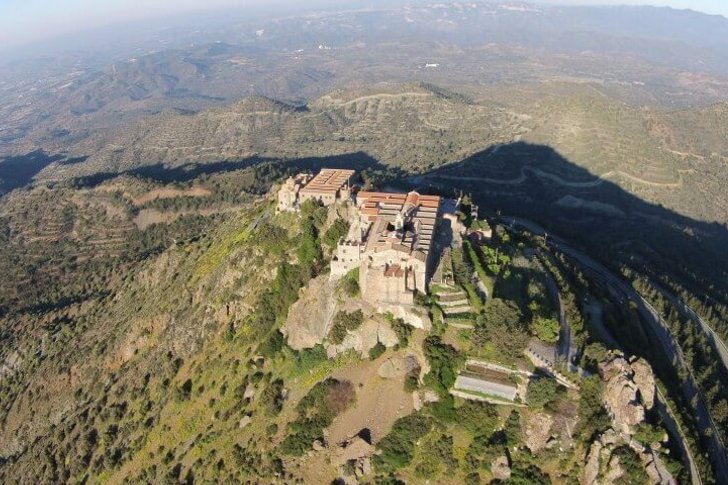
Hala Sultan Tekke Mosque
The mosque is located near the shores of a salt lake. At the moment, there are no services held in the temple, but it is open for tours. Hala Sultan Tekke is a whole complex of buildings, which includes residential buildings, a mausoleum and the temple building itself, designed for prayers. The last restoration of the mosque was carried out in the 50s. XX century. The temple was used for its intended purpose until the Turkish occupation of the northern part of Cyprus in 1974.
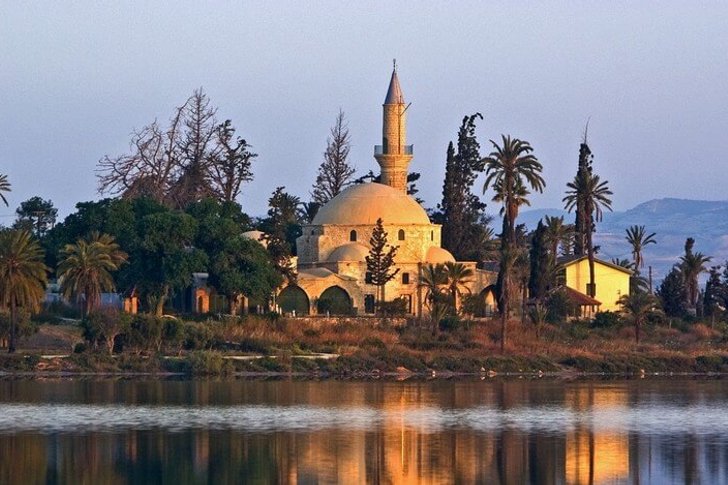
Museum of Pieridis
Private collection created in 1839. The museum is located on the territory of a house that belonged to one of the mayors of Larnaca. The museum exposition is based on the mayor's art collection, which he donated together with the house for public use in 1974. The Pieridis Museum exhibits 2.5 thousand exhibits belonging to different historical eras.
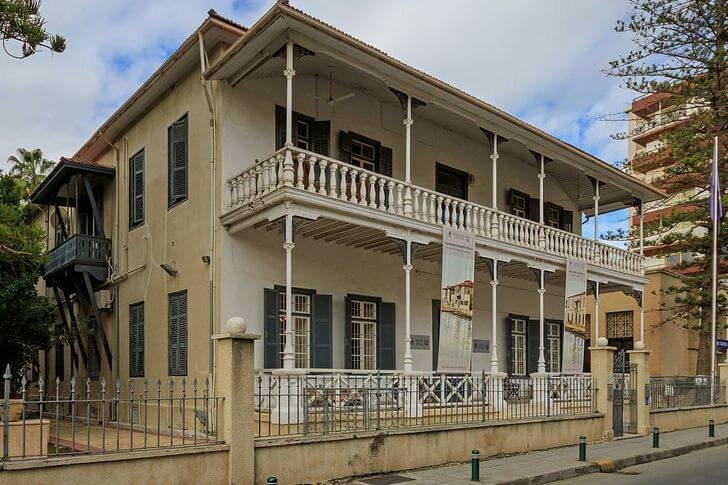
Medical Museum "Kyriazis"
The museum was opened in 2011. The exposition is entirely devoted to medical science. It exhibits equipment, books, medical devices, documents illustrating the development of medical practice in Cyprus. The time period covered by the museum collection is quite wide - from antiquity to the present day. In the garden of the museum there is a garden where medicinal plants are grown.
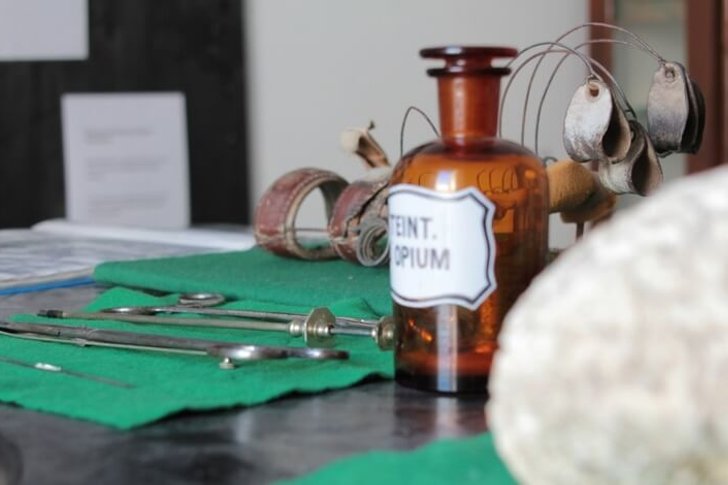
Archaeological Museum of Larnaca
The museum's collection consists of archaeological finds from the heyday of the ancient state of Kition, which existed in Cyprus from the 13th century BC. to the 4th century. Due to imperfect legislation, many valuable finds were taken from the island. Everything that remained, and was found after 1967, was placed in the Archaeological Museum. Valuable exhibits of the Cretan-Mycenaean culture, finds of the Neolithic, Bronze Age and much more are exhibited in the halls.
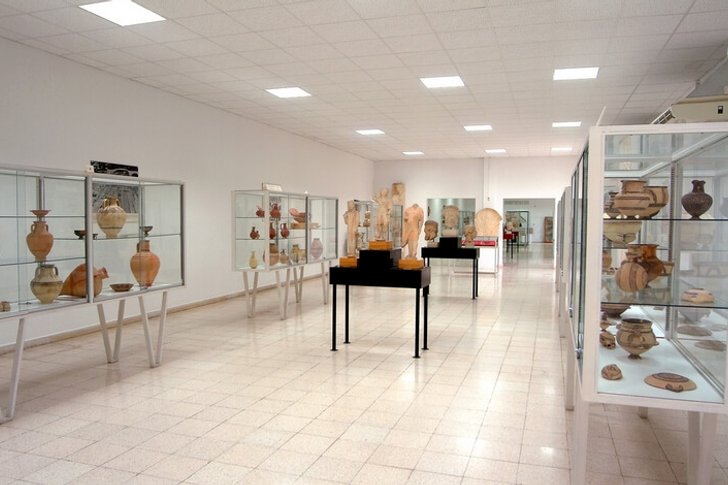
Pottery workshop "Emira Pottery"
The workshop was founded in 1987 by a master who emigrated from the northern part of Cyprus due to the Turkish invasion in 1974. In "Emira Pottery" you can watch the process of making traditional Cypriot ceramics, you can also take a master class and stick clay pots on your own. At the workshop there is a small shop where products of their own production are sold.

Lefkara village
An exemplary village located in a mountainous area among picturesque landscapes. The first mention of this place appeared in the XII century. The village was glorified by a special technique of weaving lace - "lefkaritika". There are many home workshops for the manufacture of textile products. Lace is used to make tablecloths, dresses, bed linens, curtains, scarves and shawls.
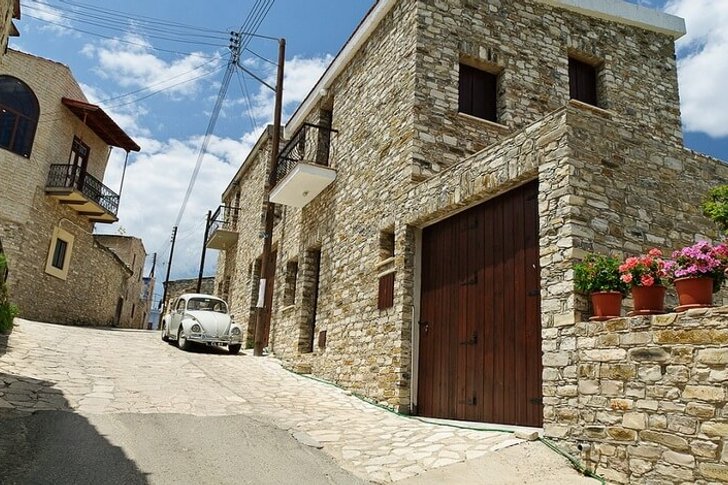
Settlement of Hirokitia
The settlement of the Neolithic era, which existed in the period of the 7th-4th centuries. BC. The people who inhabited this place lived in round houses made of mud bricks, which have survived to this day (in total, about 100 houses have come down to us). In 1998, Khirokitia was inscribed on the UNESCO World Heritage List. According to the excavations, the inhabitants had a cult of the dead, as they buried the bodies right on the territory of their dwellings.
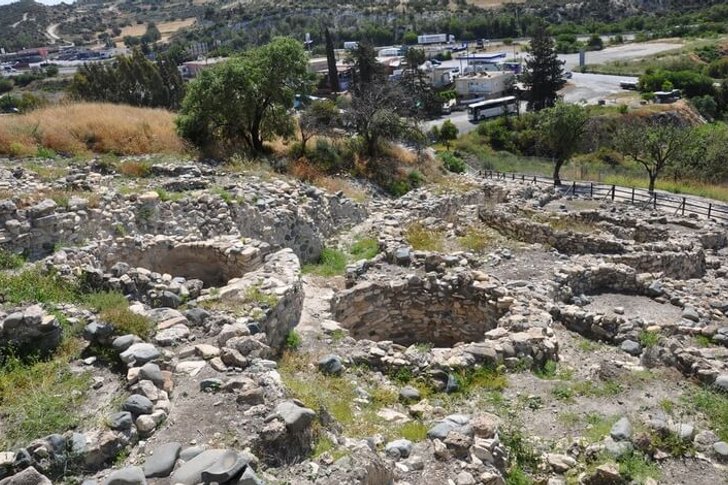
Ancient city of Kition
In the XIII century BC. in Cyprus, an ancient civilization arose and began to develop, which lasted more than 1000 years - until the 4th century. Its traces were discovered as a result of excavations in the 1920s. The ancient state was called Kition. Archaeologists have found that in order to get most of Kition, it is necessary to dig up the entire Larnaca and remove several cultural layers. Therefore, surveys are carried out pointwise, the ancient city is taken out of the ground in parts.

Aqueduct Kamares
The bridge was built during the reign of the Ottoman Empire on the island. The water pipeline was built literally in one year in 1746-1747. The total length of the aqueduct is 10 km. It consists of 75 arched spans. The water supply system worked until 1939, before the construction of a modern water supply system. Only part of the building has survived to this day, as it was badly damaged due to the expansion of the city limits of Larnaca.
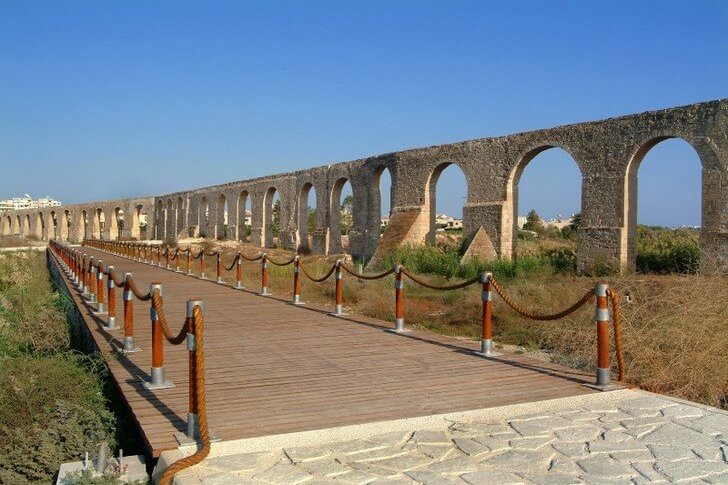
Sunken Ferry Zenobia
The ship sank in 1980 near the coast of Larnaca, it was quickly dubbed the "Titanic of the Mediterranean", however, no one was injured in the crash. Since then, the site of Zenobia's death has become popular with divers. Scuba divers love to explore the remains of the ferry in the hope of finding something of value (and many do). There really is something to see. The ship is 178 meters long and 28 meters wide.

camel park
The park is located a 15-minute drive from the city airport, halfway between Larnaca and Limassol, in the resort of Mazotos. It was established as a small private enterprise in 1998. You can ride a camel along the picturesque park paths. Also here you can relax with the whole family, have a picnic and take good photos. There is a separate play area for children. The park has a restaurant.
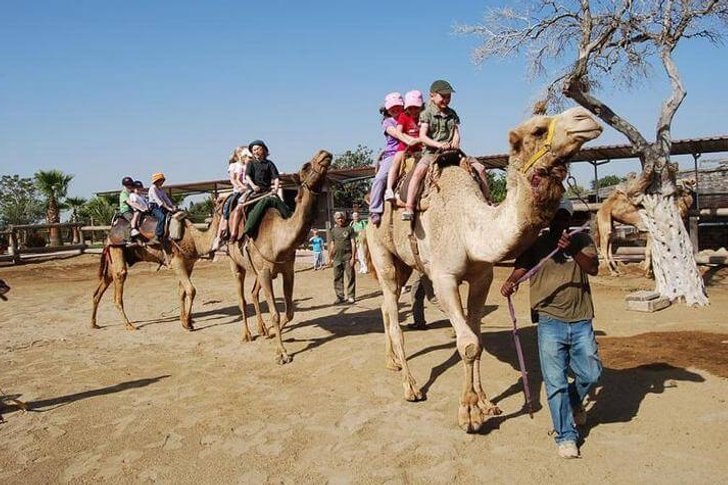
Donkey farm "Golden Donkeys"
The donkey farm was opened in 2014 in the small settlement of Skarinu. She became the second in a row (the first farm opened in this place is called "Dipotamos"). Apparently, the interest in donkeys is so high that one farm was not enough for everyone. In fact, the creators want to save a rare donkey breed that is on the verge of extinction. About 200 animals live on the farm.
